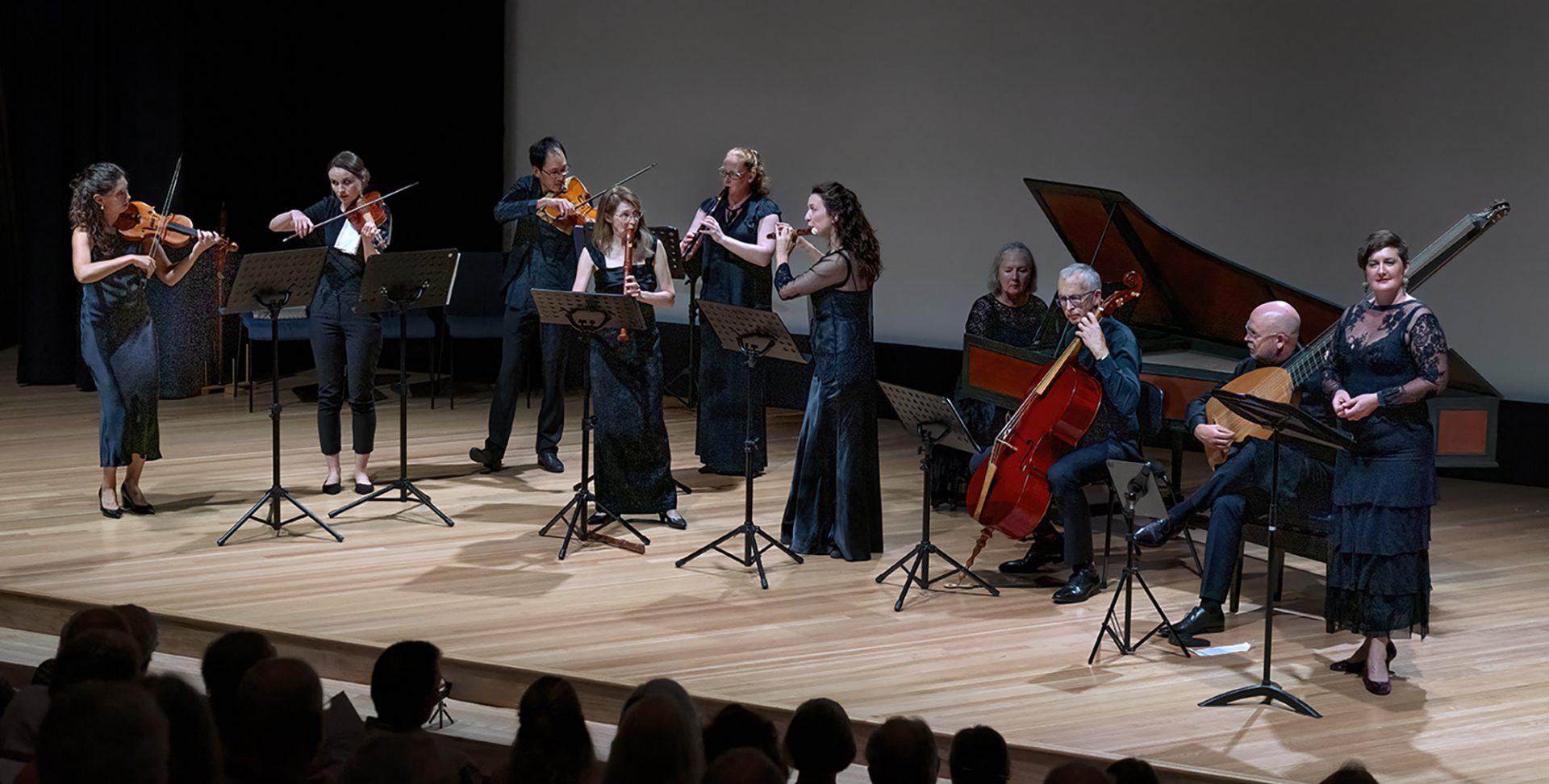Having perfected the art of being in the right place at the right time, Dr Charles Burney (1726-1814) found himself in some notable moments of music history to become a respected author, musician, composer and historian.
From his humble beginnings as an indentured apprentice and servant, Burney’s intellect, extensive networking and seemingly unquenchable thirst for knowledge led him, at the age of 44, to embark on the first of his cultural pilgrimages through Europe. His legacy of strongly opinionated letters, three books and four volumes of the History of Musical so offer a direct window into the daily life, intrigue and gossip of the 18th century.
Burney’s journey to that point involves a Who’s Who of prominent friends and acquaintances. At 16, he had his introduction to Handel (and his notorious temper), who was travelling to Dublin for the premiere performance of Messiah: “…being extremely curious to see so extraordinary a man, I watched him narrowly as long as he remained in Chester…”.
At 18, Burney became apprenticed for seven years to Thomas Arne (best known as the composer of Rule Britannia), who Burney later described as “selfish and unprincipled”. Feeling exploited, he gained release after only four years from his legal obligation to this “evil-living” master with the assistance of a new, benevolent patron in aristocrat Fulke Greville, who was seeking a household musician. And so began Burney’s education in “Society with company of the first rank for birth, breeding, and conversation”.
Constantly observing, absorbing and engaging throughout his long life, Burney developed an interest in poetry, painting and astronomy. He befriended the poet and playwright Samuel Johnson, painter Joshua Reynolds, and composers CPE Bach and Joseph Haydn. In London, Burney “met with M. Mozart and his son, … whose premature and almost supernatural talents so much astonished us in London a few years ago, when he had scarce quitted his infant state”.
Following the first voyage along the east coast of New Holland by Captain James Cook and Joseph Banks in 1770, Burney was invited to advise Cook and Banks on compiling their journals.
With his interest more in “living music” rather than “ancient music”, Burney could not abide stagnant musical styles dressed up as “traditional” and was dismissive of composers whose work did not evolve. After only a few days in France, Burney condemned the “mediocrity of French music” that had “undergone few changes at the great opera since Lulli’s time, that is to say, in one hundred years”.
Burney was similarly disappointed during his visit to Berlin, finding that “though the world is ever rolling on, most of the Berlin musicians, defeating its motion, have long contrived to stand still”. For this, Burney laid the blame squarely with the absolute King Frederick the Great: “Upon the whole, my expectations from Berlin were not quite answered, as I did not find that the style of composition, or manner of execution, to which his Prussian majesty has attached himself, fulfilled my ideas of perfection. … There are schisms in this city, as elsewhere; but heretics are obliged to keep their opinions to themselves, while those of the establishment may speak out: for though a universal toleration prevails here as to different sects of Christians, yet, in music, whoever dares to profess any other tenets than those of Graun and Quantz, is sure to be persecuted.”
Perhaps it was Burney who began the tradition of belittling the viola, the bane of long-suffering viola players everywhere. In A General History of Music Burney wrote that “[Geminiani] went to Naples, where from the reputation of his performance at Rome, he was placed at the head of the orchestra; but according to [Francesco] Barbella, he was soon discovered to be so wild and unsteady a timist, that instead of regulating and conducting the band, he threw it into confusion; as none of the performers was able to follow him in his tempo rubato, and other accelerations and relaxations of measure. After this discovery … he was never trusted with a better part than [viola] during his residence in that city.”
As a composer however, Burney considered Geminiani “was certainly a great master of harmony, and very useful to our country in his day. …He had more variety of modulation, and more skill in diversifying his parts than Corelli.” Further, “his Opera terza, which established his character, placed him at the head of all the masters then living, in this species of composition. His second concerto of the second set … is the most perfect composition of the kind, within my knowledge.”
After a life of dedication, the results of Burney’s single-mindedness in detailing composers and trends enrich our appreciation of the music and provide us with a rich source of cultural history. His legacy of witty observations, criticisms and sarcasm remind us that human nature spans the centuries, while also opening a window on the trials and tribulations of musicians and composers of that era. And with his passion for chronicling the history of music, Charles Burney achieved his ambition of transforming from a “mere” musician to being respected as an equal amongst gentlemen of society.
This post was originally written by Sally Melhuish, Artistic Director of Salut! Baroque.
Salut! Baroque’s The Historian plays at the Fairfax Theatre, National Gallery of Australia, Canberra on 21 June and Verbrugghen Hall, Sydney Conservatorium of Musicon Sunday 23 June. Tickets are available here.
